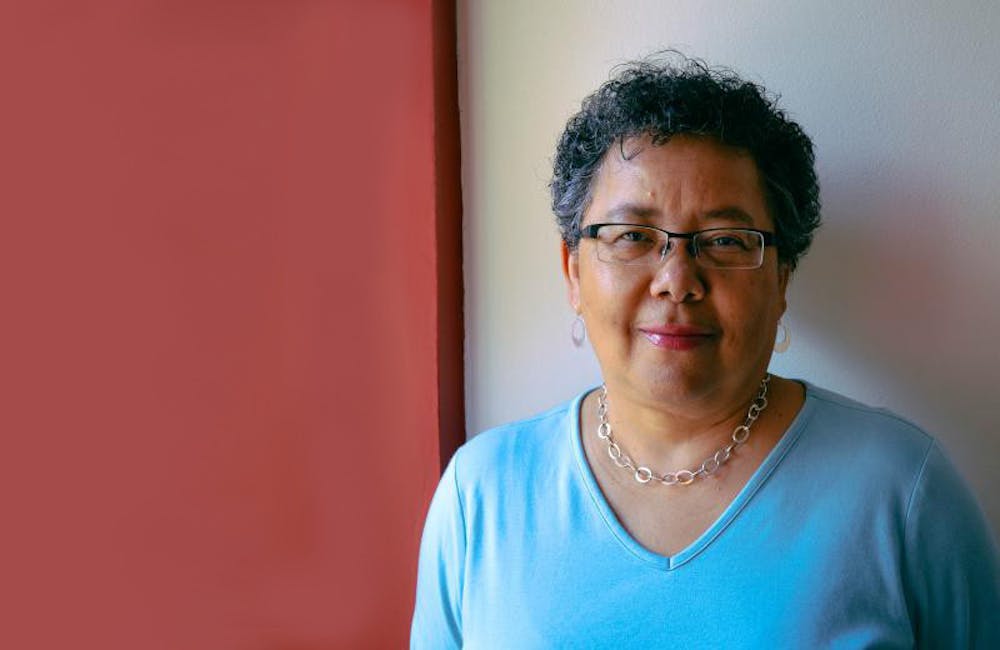
Barbara Savage, the inaugural chair of Penn’s Department of Africana Studies, won two awards for her book on the scholar Merze Tate (Photo from Penn Today).
Barbara Savage, the Geraldine R. Segal Professor Emerita of American Social Thought and inaugural chair of Penn’s Department of Africana Studies, received two awards for her book about scholar Merze Tate.
Savage’s book, titled “Merze Tate: The Global Odyssey of a Black Woman Scholar,” won the 2024 American Book Award from the Before Columbus Foundation and was a finalist for the Museum of African American History Stone Book Award. The biography focuses on the life and scholarship of Tate, who was one of the first African American women to become an academic in international relations.
Savage taught at Penn from 1995 until her retirement in 2021. During that time, she helped found the Africana Studies department and was a professor in Penn’s history department. In an interview with The Daily Pennsylvanian, she reflected on her path to academia and the process of writing her most recent book.
Savage, a first-generation college student, said that the people who raised her had not had access to education due to segregation and racial discrimination in Virginia.
“When that opportunity began to come to me and my generation, I felt a real responsibility to step forward and to step into that,” she said.
She also emphasized the impact of the teachers at her all-Black high school, saying that she is “always trying to live up to their example.” She also pointed to her experience as a child witnessing young Black activists participate in the civil rights movement, which inspired her decision to later attend college and law school.
After graduating from the University of Virginia, Savage worked in Washington on Capitol Hill and at the Children's Defense Fund. She attended Georgetown University Law Center at the age of 35, with intentions of becoming a public interest lawyer.
“I wanted to help people, not just in terms of individual needs, but in the sense of wanting to be engaged in public policies that affected people who really needed assistance,” Savage said.
Savage then developed a desire to write and pivoted to academia, receiving her doctorate in history from Yale University in 1995. She began her time at Penn that year, which is where she came across information about Tate’s life.
Tate, who lived from 1905 to 1996, was the first Black American to receive degrees from Oxford University and the first Black woman to earn a Ph.d from Harvard University. She went on to advise world leaders and teach for three decades at Howard University, making contributions to diplomacy and disarmament scholarship.
Savage said she was drawn to Tate’s story as someone who — despite living during a time that placed significant restrictions on the advancement of Black women — was able to overcome barriers of discrimination to become a prominent scholar. She added that Tate’s life was also personally meaningful.
“As a Black woman scholar myself, I was intrigued both by her life and her struggles, her intellectual life, her interior world,” Savage said. “The lessons that her life still teaches us, they're the simple ones about persistence and determination and refusing to take no for an answer.”
Savage said that, in 2017, she began to follow Tate’s archival trail around the world. She studied Tate’s work at Howard and visited Kolkata, India, where Tate lived for a short period of time in the 1950s. Through these travels, Savage said that she not only found evidence of Tate’s academic work, but also learned that she was “engaging and traveled and was a photographer and hosted parties and had an interesting social life.”
“I felt compelled as well to go see some of the places that had been most important to her,” Savage said. “I was very committed to remedy her erasure from intellectual and diplomatic history, and from African American women's history as well.”
Savage has written two other books which have previously received awards. “Your Spirits Walk Beside Us: The Politics of Black Religion” examines debates about the public responsibility of black churches and the role of religion in racial leadership, while “Broadcasting Freedom: Radio, War, and the Politics of Race, 1938-1948” investigates the rise of radio and the role of network technology in World War II-era civil rights activism.
Savage said that she hopes the recent awards bring a bigger spotlight onto Tate’s story and the importance of archival research. She added that — while the book has resonated especially with Black women scholars who recognize and appreciate Tate’s struggle — it has also been well-received by a wide range of readers, both within and outside academic circles.
“There is something universal in [Tate’s] kind of quest for education,” she said.
The Daily Pennsylvanian is an independent, student-run newspaper. Please consider making a donation to support the coverage that shapes the University. Your generosity ensures a future of strong journalism at Penn.
Donate







